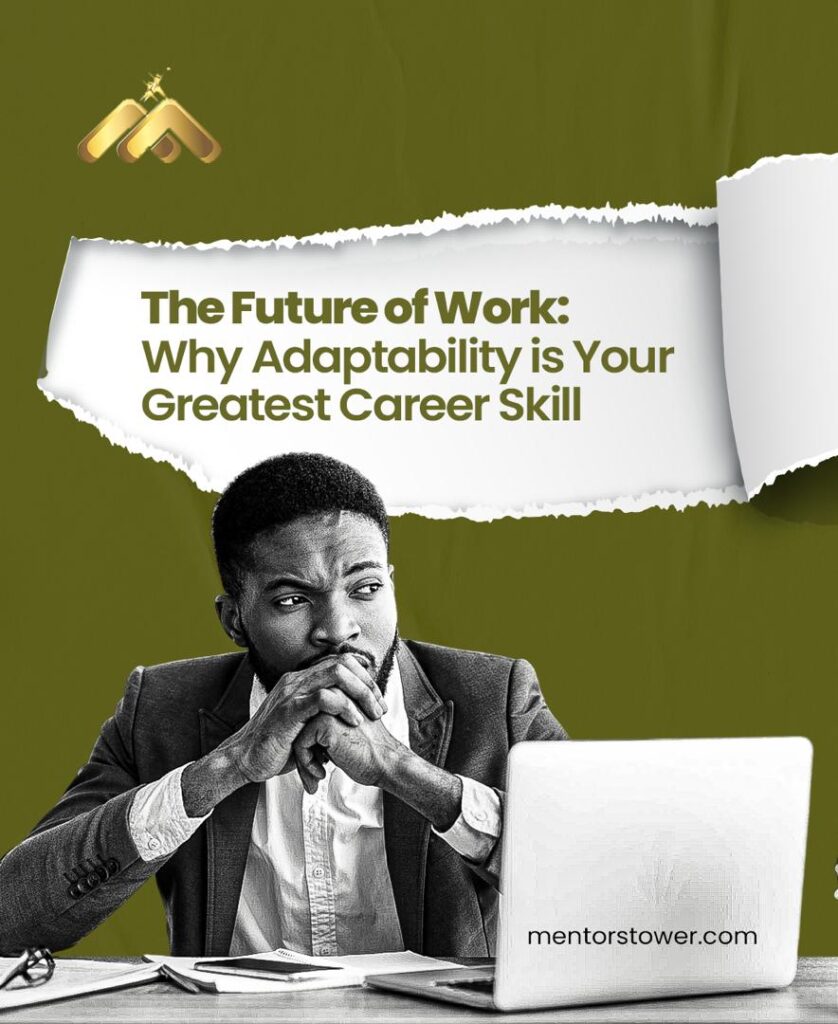
If there’s one thing we can all agree on, it’s this: the world of work is not what it used to be.
A generation ago, the traditional career path was simply getting a degree, land a job, stay loyal to one company, retire after decades of service. But today? That path looks nothing like what young professionals face. Careers are no longer linear; they are shifting, dynamic, and often unpredictable.
This isn’t bad news it’s a wake-up call. The people who thrive in today’s workplace aren’t necessarily the smartest or the most experienced. They’re the ones who know how to adapt.
What does adaptability really mean?
Adaptability is more than just “going with the flow.” It’s the ability to adjust quickly when circumstances change and still stay productive, innovative, and even optimistic. It’s being flexible enough to learn new skills, take on new roles, or even change industries when needed.
Think of adaptability as a mindset. Instead of saying, “This isn’t how I’m used to working,” an adaptable person says, “How can I make this work for me?”
Why adaptability matters more now than ever
We’re living in a time of constant disruption:
- Technology: AI and automation are reshaping entire industries. Roles that existed ten years ago are disappearing, while brand-new ones are emerging.
- The Economy: Recessions, inflation, and global supply chain issues affect how companies hire and grow.
- Work Models: Remote, hybrid, and gig work are now mainstream. The “9–5 office” is no longer the default.
When the COVID-19 pandemic hit, adaptability was the skill that separated those who thrived from those who struggled. Entire organizations had to switch to remote work overnight. Those who learned tools like Zoom, Slack, or Trello quickly became invaluable. Others who resisted change found themselves left behind.
Employers now value adaptability over experience
Recruiters say it all the time: they’d rather hire someone who’s adaptable than someone with decades of rigid experience. Why? Because adaptable employees are problem-solvers. They learn fast, stay resilient under pressure, and bring creativity into uncertain situations.
Imagine two candidates in a job interview:
- One says, “I’ve been doing the same role for 15 years, and I’m very comfortable with it.”
- The other says, “I’ve worked in three industries, each time learning new systems, adapting to new environments, and growing my skillset.”
Guess who gets the job in today’s market? The adaptable one.
Adaptability is personal growth in disguise
Here’s the thing adaptability doesn’t just help your career, it helps you grow as a person. Every time you step into something new and learn to handle it, your confidence expands.
It’s like building muscle. The first time you face change, it feels heavy. The next time, it’s easier. Eventually, you become the kind of person who can face the unknown with courage.
And that’s powerful because the future of work is unpredictable. But your mindset doesn’t have to be.
How to practice adaptability daily
Here are some practical ways to build adaptability like a muscle:
- Stay curious. Don’t just do your job learn around it. Read about industry trends, listen to podcasts, attend webinars. Curiosity makes change less intimidating.
- Say yes to stretch opportunities. That project that feels slightly outside your comfort zone? Take it. It’s practice for bigger pivots down the line.
- Reframe failure. When something doesn’t work out, ask yourself: What did this teach me? Adaptable people see lessons, not just losses.
- Ask for feedback. Growth happens when you let others point out blind spots. Feedback is fuel for adaptability.
- Plan but stay flexible. Have goals, but don’t cling to rigid timelines. Adaptability means being able to adjust your path while keeping your destination in sight.
Final thought
The future of work will always bring uncertainty. But instead of fearing it, you can prepare for it. Adaptability isn’t just a survival skill it’s a career superpower.
When you embrace change, you position yourself as someone who can thrive no matter what happens next. And that’s exactly the kind of professional the future belongs to.
